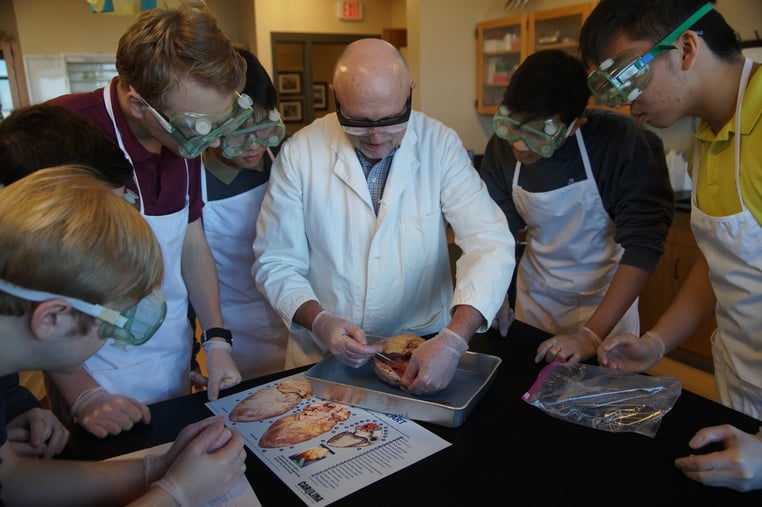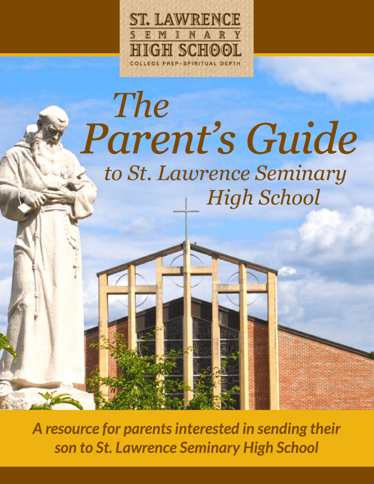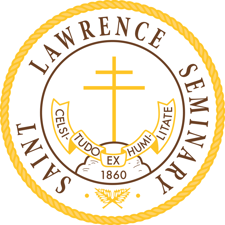
Currently, there’s a large push in education for more STEM-based curriculum (and even more recently, STREAM). But what does this mean? What does it look like? And how does St. Lawrence Seminary use this curriculum? This article will break it all down.
What is STEM/STREAM?
STEM education is an educational curriculum that is an anagram for Science, Technology, Engineering and Math. Students in STEM programs may have more experiential learning opportunities, but they are limited to only these subjects. Our economy requires so much more than an understanding of these areas alone – it requires application, creation and ingenuity.
STREAM education focuses on science, technology, engineering, the arts and mathematics as access points for guiding student inquiry, dialogue and critical thinking. Reading, writing and, depending upon the school, religion represent the letter R of STREAM. STREAM education results in students who take thoughtful risks, engage in experiential learning, persist in problem-solving, embrace collaboration, and work through the creative process. These are the innovators, educators, leaders, and learners of the 21st century! At St. Lawrence Seminary, we integrate STREAM into our holistic approach to education.
STEM/STREAM at St. Lawrence Seminary
STREAM is integrated into the core curriculum of all St. Lawrence Seminary classes. While only three years of math and science are required, over 90% of our students will take four years of each subject. Being able to think, write and speak in each discipline is part of the STREAM process taught within our curriculum.
Some of how we use STEM/STREAM in all our courses is as follows:
- Students read novels to understand emotions and how people interact
- Students are educated about history, not for the dates, but do understand how we got were we are, what has been tried in the past and how to collaborate
- Students learn math, not to solve math problems, but to use that ability to solve problems that affect people
- Students study science to appreciate the wonder that we live in and to use that knowledge to help people
- Students perform music or create works of art not just for their beauty, but because it allows them to be creative
Electives and Extracurriculars
We offer additional elective courses for students such as Mechanical Drawing, Advanced Art, Accounting, Trigonometry, and Probability and Statistics. All are designed to enhance critical thinking skills and finding new ways to solve old problems.
Students can also partake in a variety of clubs and events on campus such as Art Club, Math Team, Reading Club, Student Publications, even using our astronomy observatory.
Capstone Projects
At the end of the year, students complete their capstone projects, typically with a STREAM based approach. This past year the projects included Embryonic Stem Cell Research, Climate Change and Access to Clean Water in the Developing World. Research projects enable students to gather information from reliable sources, synthesize such information as well as propose an action plan for dealing with the concern.
While many people focus on STEM, STREAM allows for the inclusion of many more subjects. By integrating these subjects together, students have a broader approach to problem solving.
Learn more about STEM/STREAM programs and our entire curriculum with the Parent’s Guide to SLS.
St. Lawrence Seminary is an all boys Catholic boarding school located in Mt. Calvary, Wisconsin. We welcome students from Minnesota, Illinois and across the United States. Inspired by the Gospel of Jesus Christ and the example of St. Francis of Assisi, St. Lawrence Seminary provides a residential college preparatory education in a living Catholic community nurturing mature, well-rounded men of faith. See if St. Lawrence is right for you and your son.



